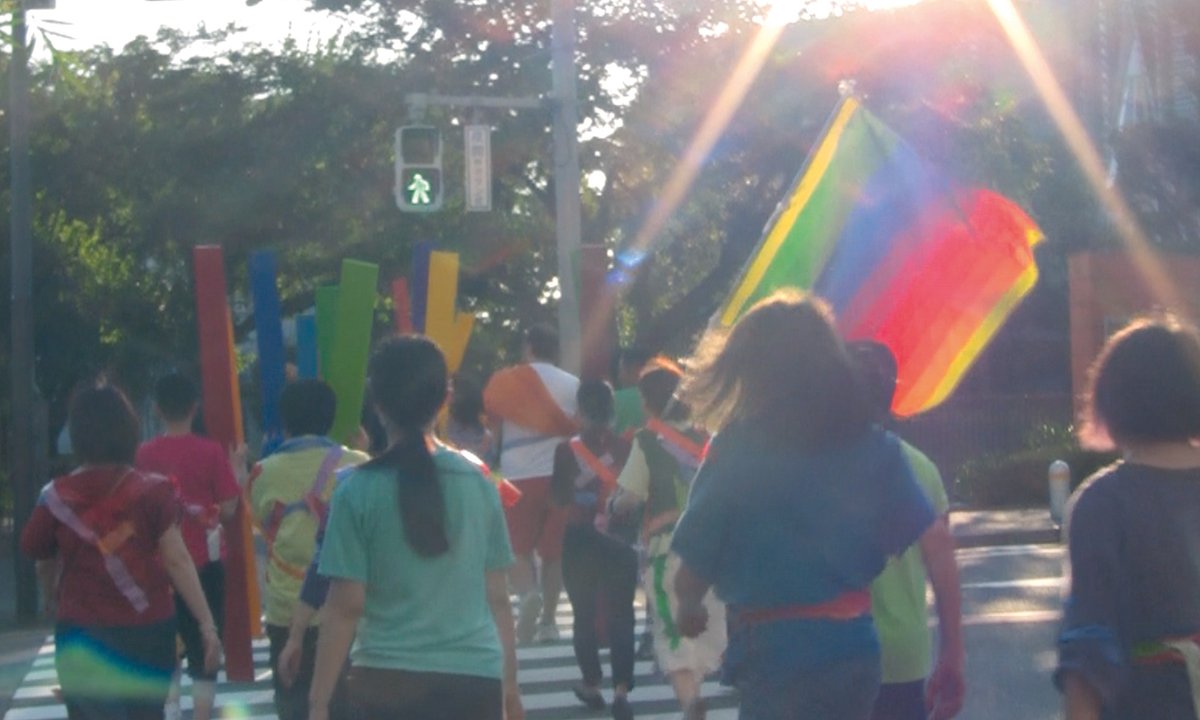Ei Arakawa-Nash’s show features a 2024 film created in collaboration with Reiji Saito, which pays tribute to Ellsworth Kelly’s colourful 1953 painting Spectrum I and to Tokyo’s LGBTQIA+ community Courtesy of the artists
In Paintings Are Popstars, the National Art Center, Tokyo, is staging the first solo survey exhibition of the queer Japanese American artist Ei Arakawa-Nash. His performance works will occupy one of NACT’s cavernous galleries across nine sections, each addressing painting’s relationship to a different theme, such as parks, parenting, passports and prancing. Arakawa-Nash will perform weekly in what is also the museum’s first solo exhibition by a performance artist.
In addition to inviting participation from the public, much of Arakawa-Nash’s work gives a platform to other artists. Here, he will feature, for example, a painting by his fellow Japanese American artist Miyoko Ito, whose work has never previously been shown in Japan. He will also devote one section of the show to representing the local LGBTQIA+ community.
While art historical and pop cultural references are staples of his work, Arakawa-Nash explains, “Often my life becomes a part of my performance subject.” He is due to become a parent to twins after the close of the exhibition, which he titled after the Japanese singer Yumi Matsutoya’s 2013 track Babies are popstars; some of his pieces address the woes of balancing parenting with work.
Suspicious of the early 2000s trend of highlighting performance in the West, but also envious of painting’s exalted status in the art world, Arakawa-Nash linked his performances to the discourse of painting. His citations, however, are nuanced, and not always simply adoring. The exhibition will feature LED versions of paintings by the Minimalist painters Ellsworth Kelly and Agnes Martin, whose delicately produced works reproduce poorly even in photographs. They are also queer artists who preceded the watershed moment of the Stonewall riots in 1969—a fact important to Arakawa-Nash and often ignored by art institutions.
Arakawa-Nash’s own relationship to local art institutions is no less complicated. He explains that he is “using [all the] social capital I have to test the limits of the Japanese national museum”. Smuggling live performance, LGBTQIA+ activism and the anxieties of an artist awaiting parenthood into one of Japan’s leading institutions, the show promises to be a riot.
• Ei Arakawa-Nash: Paintings Are Popstars, National Art Center, Tokyo, 30 October-16 December

